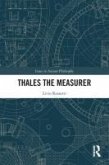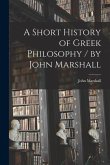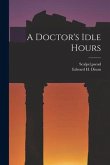This book examines how sleep and dreams were approached in early Greek thought, highlighting the theories of the Presocratic and Hippocratic writers on both phenomena as more varied, complex and substantial than is usually credited.
Hinweis: Dieser Artikel kann nur an eine deutsche Lieferadresse ausgeliefert werden.
Hinweis: Dieser Artikel kann nur an eine deutsche Lieferadresse ausgeliefert werden.
"[Holton's] decision to look at the physiological and psychological dimensions of sleep alongside dreams adds a new dimension to discussions of Greek dreaming. The practical organization of this book and the range of passages that it discusses guarantee that anyone interested in Greek dreams and their interpretations will return to it again and again. Holton's attempt to trace the origins and development of Greek ideas about dreams before Plato, Aristotle, and Artemidorus has produced a clear, useful map for future explorers of the Greek dream-world. It remains true, I think, that Aristotle is the first Greek author to advance a comprehensive and physiological theory of sleeping and dreaming, but Holton shows that a rich tradition of speculation on these topics existed more than a century earlier." - Bryn Mawr Classical Review
"[Holton's] decision to look at the physiological and psychological dimensions of sleep alongside dreams adds a new dimension to discussions of Greek dreaming. The practical organization of this book and the range of passages that it discusses guarantee that anyone interested in Greek dreams and their interpretations will return to it again and again. Holton's attempt to trace the origins and development of Greek ideas about dreams before Plato, Aristotle, and Artemidorus has produced a clear, useful map for future explorers of the Greek dream-world. It remains true, I think, that Aristotle is the first Greek author to advance a comprehensive and physiological theory of sleeping and dreaming, but Holton shows that a rich tradition of speculation on these topics existed more than a century earlier." - Bryn Mawr Classical Review








